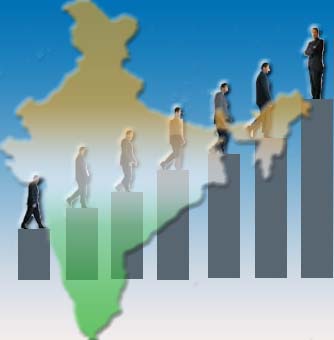
The Indian economy is expected to grow at around 7 per cent in the current financial year (2009-10) if the monsoons do not suffer further delay, said Suresh Tendulkar, chairman of Prime Minister's Economic Advisory Council.
"The delay in monsoons, as of now, is not of major concern and would not have any dramatic effect on the economy," Tendulkar told reporters at a press conference here. He also stated that the economy would start recovering by September this year.
Last week, the India Meteorological Department downgraded its monsoon forecast to 'below normal'. This has led to fears whether it would affect agricultural output and bring down India's growth in the current fiscal. The agriculture sector contributes around 17 per cent to the gross domestic product and employs around 60 per cent of the nation's total workforce.
"If the monsoons get delayed by another two weeks or so, only then will it have major effects on the economy and its major indicators," said Pronab Sen, chief statistician of India.
Moreover, normal rainfall in the central regions of the country is likely to bring down the prices of pulses and oil seeds.
Essential food items like pulses and cereals have registered double-digit inflation rates, as measured by the wholesale price index in the past months even though overall inflation had hovered around zero rate to enter the negative territory two weeks ago. The current headline inflation rate is at -1.14 per cent for the week ended June 13.
"I expect the inflation rate to stay below zero for another 45 days. Crude oil and high food prices will pull the inflation up and neutralise the high base effect," added Sen.
Tendulkar predicted the inflation rate as measured by the WPI for the year at around 5 per cent and said that the consumer price index, which is at around 10 per cent, will come down if the rains do not post further delay.
To the cuts made by various public sector banks in lending rates, Suresh Tendulkar said that the bank rates are finally reflecting the various key policy rate cuts by the Reserve Bank of India.
Since September last year, the central bank has reduced repo rate by 4.25 percentage points. State Bank of India, the country's largest lender, and Allahabad Bank have recently announced a 50-basis-point and 25-basis-point cut in benchmark lending rates, respectively.
"I do not see a further cut in bank lending rates without reduction in deposit rates," added Tendulkar.
Business Standard

No comments:
Post a Comment